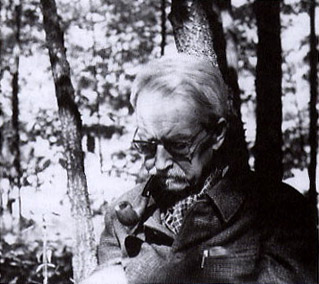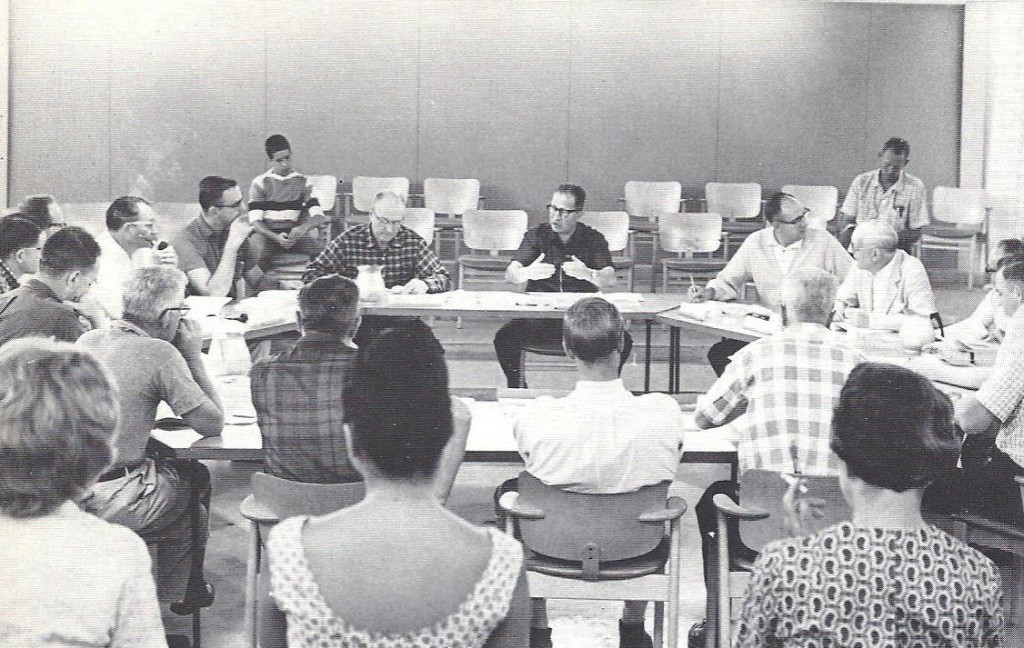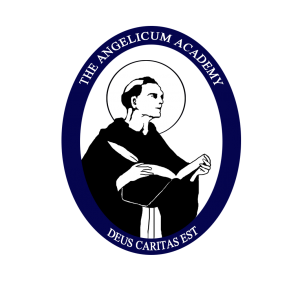
Dr. Mortimer J. Adler
By Mortimer Adler
In his tragicomic essay, “The Great Liberal Death-Wish,” Malcolm Muggeridge, recounts the following experience:
On radio and television panels, on which I have spent more time than I care to remember, to questions such as: What does the panel think should be done about the rising rate of juvenile delinquency? The answer invariably offered is: more education. I can hear the voices ringing out now, as I write these words; the males ones throaty and earnest, with a tinge of indignation, the female ones particularly resonant as they insist that, not only should there be more education, but more and better education. It gives us all a glow of righteousness and high purpose. More and better education – that’s the way to get rid of juvenile delinquency, and adult delinquency, for that matter, all other delinquencies. If we try hard enough, and are prepared to pay enough, we can surely educate ourselves out of all our miseries and troubles, and into the happiness we seek and deserve. If some panel member – as it might be me – ventures to point out that we have been having more, and what purports to be better, education for years past, and that nonetheless juvenile delinquency is still year by year rising, and shows every sign of going on so doing, he gets cold hostile looks. If he then adds that, in his opinion, education is a stupendous fraud perpetrated by the liberal mind on a bemused public, and calculated, not just to reduce juvenile delinquency, but positively to increase it, being itself a source of this very thing; that if it goes on following its present course, it will infallibly end by destroying the possibility of anyone having any education at all, the end product of the long expensive course from kindergarten to post graduate studies being neo-Stone Age men – why, then, a perceptible shudder goes through the other panelists, and even the studio audience. It is blasphemy.
Muggeridge here unabashedly declares that contemporary education is a failure; even worse, a deception, an institution needing, if possible, a new direction, a radical change of course. More specifically, he draws attention to the fact that so much of what passes for educational improvement is no reform at all, itself being just another consequence of their same errant educational philosophy- another instance of the status quo. What is needed, then, is genuine reform, a wholesale change. The homeschooling movement offers just such an opportunity.
What is the nature of the errant philosophy which has modern education in its grip? It is a doctrine of mechanistic and social science built upon an inadequate account of human nature and born out of Enlightenment conceptions of human reason, conceptions which neglect the metaphysical and theological dimensions of the human person and which deny a tradition where they are central. Moreover, this philosophy fails from an axiological point of view because, in light of its limited understanding of human nature, it uncritically embraces pluralism, and ultimately devolves into historicism and moral relativism.
That such a philosophy still dominates education is evident in the numberless drafts of policies and strategies proposed by educators yearly. Their efforts to engineer education generally resist any attempt to understand the human being except in terms of historical, social, and cultural manifestations, cast against a background of mechanistic, empirical science generally; and this is to say nothing of the actual content of classroom instruction, where students are evangelized according to the gospel of Enlightenment science (or its nihilistic consequences) from faculty generally unaware of their own assumptions.
Since, according to this philosophy of education, the human condition points to nothing but itself, to nothing transcendent, the principle objective of learning readily reduces to the dogma of technique or instrumentalism, according to which knowledge has value only because it is useful for individual or social advantage. Hence, the technical training and careerism rampant in today’s curricula.

Jacques Maritain
Instead of such a skeptical and narrow philosophy, Jacques Maritain proposed an education that retrieves the timeless principles of a Christian culture, and that also recovers the Jewish and Greek conceptions of the human condition. These elements are the constituents of a theocentric humanism, which provides a sure basis for education, since it understands comprehensively the nature and ends of human life. This is a humanism that honors the fact that the human person has both a secular and a trans-secular destiny, as well as a natural and trans-natural end. To be human is to be a product of nature and of the human; but to be human is also to be a creature of God, to Whom the human person is supernaturally ordinated.
Theocentric
In calling for a different foundation, however, one that recovers a different tradition, Maritain is neither a pathetic nostalgic nor an exclusivist. In the first instance, he aims to recover a tradition, not just because it is a tradition, but because it holds lessons and values for contemporary times. In the second, he has in mind a legacy that is inclusive, by virtue of its comprehensiveness and analogy, one that accommodates all peoples by not necessitating a commitment to formal institutions or canons but only to a world-view respecting the spiritual depth, dignity, and mystery of human personality.
In a Judeo-Greco-Christian civilization like ours, this community of analogy, which extends from the most orthodox religious forms of thought to the mere humanistic ones, makes it possible for a Christian philosophy of education if it is well founded and rationally developed , to play an inspiring part in the concert, even for those who do not share in the creed of its supporters…
In answer to our question, then, “What is man?” we may give the Greek, Jewish, and Christian idea of man: man as an animal endowed with reason, whose supreme dignity consists in voluntarily obeying the law of God; and man as a sinful and wounded creature called to divine life and to the freedom of grace, whose supreme perfection consists of love.
With this statement of his philosophical anthropology, Maritain is calling for educators to change direction and to journey along another, less worn path, a road more soundly constructed and with a more definite direction. The Frenchman’s call is still timely, for the same crisis that educators faced in his day is still before us. The intersection that defines this crossroads presents educators with one of two alternatives:
to continue educating according to the assumptions of a positivistic social science, pressing on with a so-called reform that is, in fact, no reform; or,
to provide a different foundation for education, one which is committed to a philosophical anthropology grounded in a tradition antedating the Enlightenment and rooted in more ultimate metaphysical and theological principles, while at the same time doing justice to the fact that the human condition is also situated socially, historically, and culturally.
Institutions of learning have made their decisions: (with very few exceptions) they have chosen the first alternative – to continue down the road of anthropocentric humanism. Having been so radically compromised, they are beyond reform. At the present time, educational reform on any meaningful scale in this country can now only apply to individual educators, to parents and their little flocks at home, not to institutionalized education in general.
The words college and university derive from Latin roots signifying unity. Without coherence and synthesis [unity], knowledge cannot result in understanding nor mature into wisdom; and if educational institutions fail to lay, at least, the foundations of wisdom, they simply fail to educate. American educational institutions have failed democracy specifically in that it they failed to address those abiding concerns of philosophical anthropology and ethics necessary to make sense of our social lives.
If modern educational institutions are unable to contribute to these ends because they no longer make sense out of metaphysical and axiological principles necessary for understanding human existence, then educational institutions can no longer even begin to teach the human being what it is to be a human being. If so, the student ends his education as he began it, with no wisdom about himself. Hence, his soul is impoverished, for, even in general outline, he cannot answer the question, what is it to live a human life?
His education has failed to teach him how to understand himself and how to relate to his world.
This failure to cultivate in students a due regard for their human nature sufficient to inspire them to believe that to live the human life is to live a life according to reason accounts, in my judgement, for the exaggerated careerism and bourgeois individualism among the youth today. Because educational institutions no longer assist students even in those first faltering steps toward wisdom – which, at a minimum, is to exercise confidence in the conviction that reason, to a significant degree, equips one to deal with life effectively – students have come to fear the world and human life as an absurd, dangerous, and wholly mystifying place. Since they have not been taught to value or to depend on reason, they suppose that the world is, in fact, irrational. Since this condition makes for an insecure existence, they turn delusionally to the mystique of job and technological expertise to provide them security. For them a job is the only security possible in a world beyond the reach of reason.
 There is no doubt that Maritain would approve of Mortimer J. Adler’s Paideia Proposal to reform education. In Education at the Crossroads he lauds Adler’s efforts. What merits Maritain’s approval is that Adler, unlike so many other reformers, realizes that education can take place only when an understanding of human nature and its ends are vigorously evident and operative in the mission (goals), curriculum, and modes of instruction used.
There is no doubt that Maritain would approve of Mortimer J. Adler’s Paideia Proposal to reform education. In Education at the Crossroads he lauds Adler’s efforts. What merits Maritain’s approval is that Adler, unlike so many other reformers, realizes that education can take place only when an understanding of human nature and its ends are vigorously evident and operative in the mission (goals), curriculum, and modes of instruction used.
Since this understanding is generally ignored by systems of education today, one must regrettably conclude that only nominal education is taking place. High schools, colleges and universities may still impart knowledge, but this has only to do with data and technique. There is little effort to connect knowledge with those principles of coherence sufficient to make knowledge yield understanding and relate to human life and its ends. Hence learning in today’s school system is about more or less discrete knowledge, but not really about education.
Taking to heart the Latin root of education (from ex + ducere – to lead out of), there is simply little, if any, leading out of ignorance to an enlightened reckoning of what it is to realize the potentialities of human life. Adler, however, understands that without these ultimate foundations there is no education. His Paideia (that is, the upbringing of children) Proposal, which accords with his earliest recommendations for educational reform, dating back to his association with Robert Maynard Hutchins in the thirties, is a program aiming to supply these foundations and, thereby, to bring about lasting educational improvements. His recommendation is to return to the great books.
Adler proposes that these classic works be taught dialectically, in discussion groups. In this way, moderators can better cultivate in students those intellectual virtues, such as independence of mind, which made possible the production of great books originally. This also sets up the conditions so that education can contribute to the moral and political reflections necessary for the formation of citizens in a democratic society.
Such reflections vindicate religious-based homeschool education because such education addresses the entire human condition and man’s secular and metaphysical ends, and thereby makes sense out of the metaphysical and axiological principles of human existence by integrating them into a coherent synthesis. A religious-based homeschool education, based on Dr. Adler’s Paideia Proposal, concluding in the study of the classics – the great books (particularly if augmented with dialectic discussion groups), such as that proposed by the Great Books Academy, would therefore be an ideal educational environment for our times (the parents providing the religious instruction).
Having returned to its roots in the family, homeschool education has signal significance for history. Parents must become that diaspora of enlightened educators about whom Maritain prophesied, a diaspora laboring in the twilight of civilization. It is a labor, I am confident, that Providence can put to a purpose.

